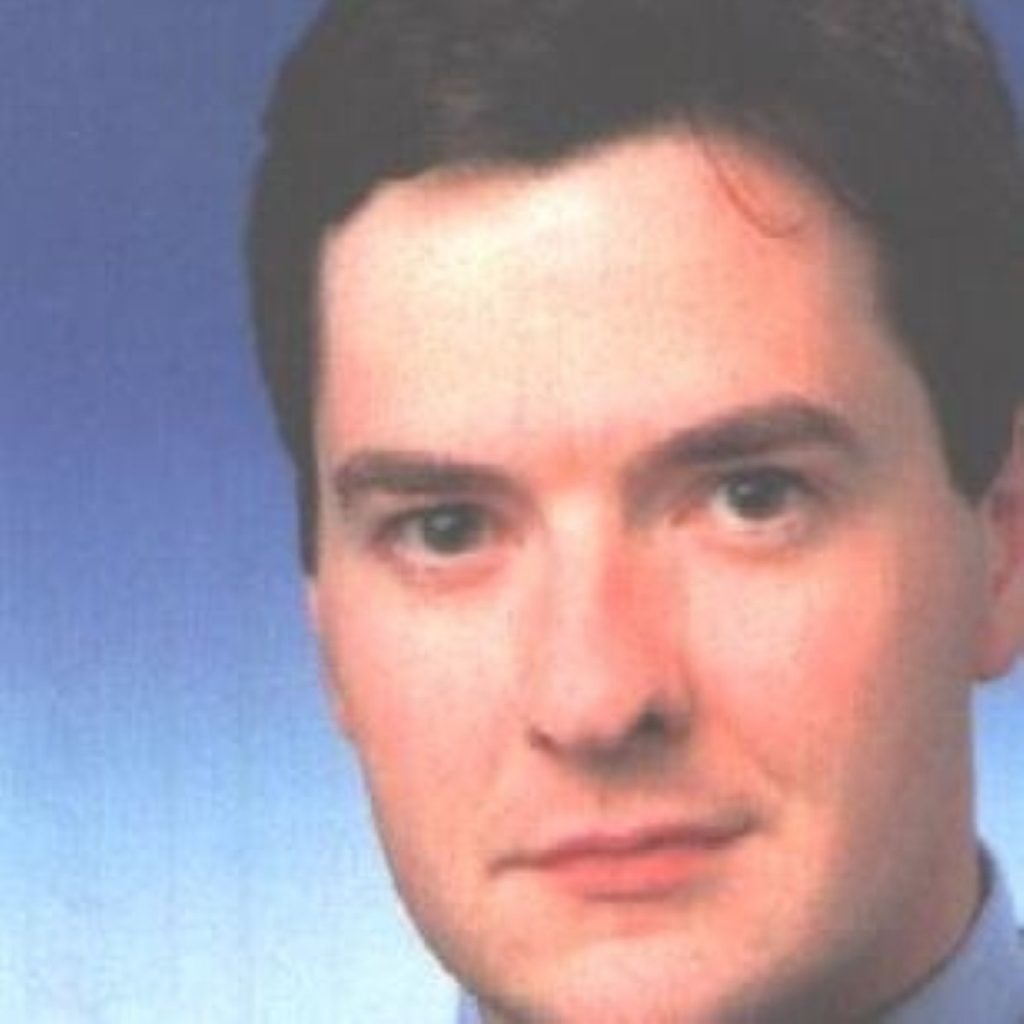Cameron and Osborne stand firm on tax cuts
The Conservative leadership was today holding firm on its pledge not to commit to tax cuts at the next election, ahead of a potential showdown with party members.
Tory leader David Cameron this morning stressed he was “not going to be pushed around on this issue” and refused to make any promises he may not be able to keep.
And this evening, shadow chancellor George Osborne fought off a number of demands from Conservative members at the party conference in Bournemouth to commit to reducing the tax burden.
Taxation is one of the key challenges facing Mr Cameron, as his insistence that stability must come before tax cuts has angered many members of his party.


A report published by John Redwood for the No Turning Back group will this week insist tax cuts are crucial to economic growth, while the party’s own tax commission is expected to recommend cuts of up to £20 billion when it reports later this month.
Mr Osborne is said to be trying to water down the proposals before they are published, and this evening he made clear he stands by his announcement earlier this year that the Tories were unlikely to offer tax cuts at the next election.
“I’m a Conservative – I believe in low taxes. But I also believe that the first priority of any chancellor is economic stability,” he told a fringe meeting in Bournemouth.
He added: “It is incredibly important that we are seen as a responsible party, and are not making irresponsible promises about taxes three or four years before we deliver a budget.”
Mr Osborne noted that less than a year ago, the Tories were 22 percentage points behind Labour when voters were asked who could best manage the economy – today they were two points ahead.
Speaking on the BBC’s Sunday AM this morning, Mr Cameron also held to his view that stability must take precedence, saying: “Those people who say, ‘You know I want tax cuts and I want them now’ – they can’t have them.
“What people want to hear is stability comes first, because we’ve all got mortgages and mortgage rates matter more than anything else, stability comes first, but over time we will share the proceeds of growth between public spending and tax reduction and if its possible to reduce those taxes we will.”
Despite his refusal to commit to reducing the tax burden, Mr Osborne pledged to cut the share of the national income spent by the government over an economic cycle.
And he indicated there would be a shift away from taxation on income to taxation on things such as environmental behaviour.
“There is scope for rebalancing the tax system..to take it away from things we support, such as income, and put it on things we are trying to eliminate, such as pollution,” he told the fringe meeting.
This approach forms the basis of the Liberal Democrats’ new taxation package, but Mr Osborne refused to say whether he would back another of the Lib Dems’ policies – to scrap the lowest rate of income tax.
“Some people who think it is not a good idea, including [former chancellor] Nigel Lawson, say people should pay some tax otherwise they are not aware of the cost of government. But the tax commission is looking at this as one of the options,” he said.









